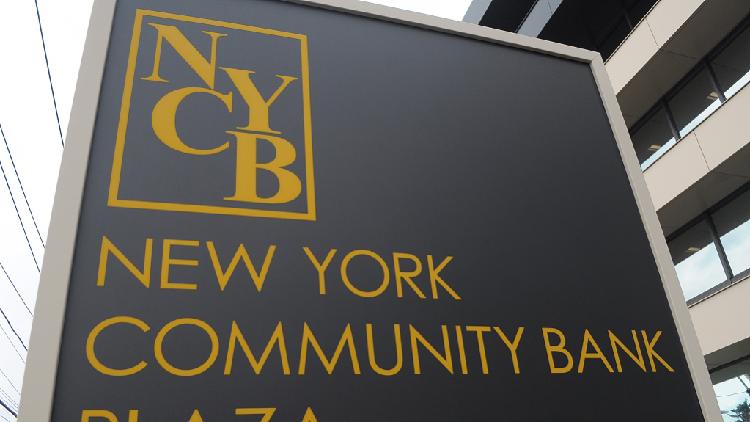Concern reemerges over U.S. banking sector following regional bank sell-off
Regional bank sell-off renews concerns over U.S. banking sector

A fresh wave of sell-off in U.S. regional bank shares has rattled markets, reigniting concerns that the country's banking system may not be out of the woods yet.
It started as New York Community Bancorp (NYCB) saw its shares fall as much as 38 percent to their lowest in over two decades on Wednesday, after the lender swung to a surprise fourth-quarter loss and announced a cut in its dividend.
Rating agency Moody's said on the same day it had placed NYCB on review for a downgrade that could push the lender into "junk territory."
The pessimism quickly spilled over to other U.S. banking stocks, with Western Alliance Bancorp down by 7.57 percent and Zions Bancorp plunging by 6.32 percent at the close of trading on Thursday.
The sell-off came nearly a year after a fatal deposit run led to the collapse of Silicon Valley Bank, which marked the largest bank failure in the U.S. since the global financial crisis.
Troubled real estate sector poses risks for regional banks
The New York-based NYCB posted an adjusted quarterly loss of $185 million due to a chunky $552 million provision for credit losses.
The lion's share of those provisions was allocated to its commercial real estate portfolio which, as with many lenders, has been under pressure as default rates on commercial real estate loans rise amid COVID-19-pandemic-led office vacancies.
Banks are facing roughly $560 billion in commercial real estate maturities by the end of 2025, according to data provider Trepp. That represented more than half of the total property debt coming due over that period.
Regional lenders in particular could be more heavily exposed to the industry, and would be hit harder compared to their larger peers, as commercial real estate loans account for a larger proportion of assets at small banks than bigger lenders, reported Bloomberg.
No end in sight for turmoil in banking sector, say experts
The recent turmoil could be a cautionary sign of more pain to come for the U.S. banking sector, according to experts.
"It's clear that the link between commercial property and regional banks is a tail risk for 2024, and if any cracks emerge, they could be in the commercial housing and bank sector," said Bloomberg, quoting Justin Onuekwusi, chief investment officer at wealth manager St. James's Place, as saying.
Martin Rauchenwald, the partner and leader of the financial services practice at ADL, said contractionary monetary policy and economic slowdowns have created real danger for financial institutions, with the increasing probability of mortgage default threatening another period of turmoil.
"Financial institutions need to urgently reassess their portfolios and explore alternative financing options, or risk being hit by a new crisis," he added.
(With inputs from Reuters)
LD TROIB News
Find more stories on Business, Economy and Finance in TROIB business












